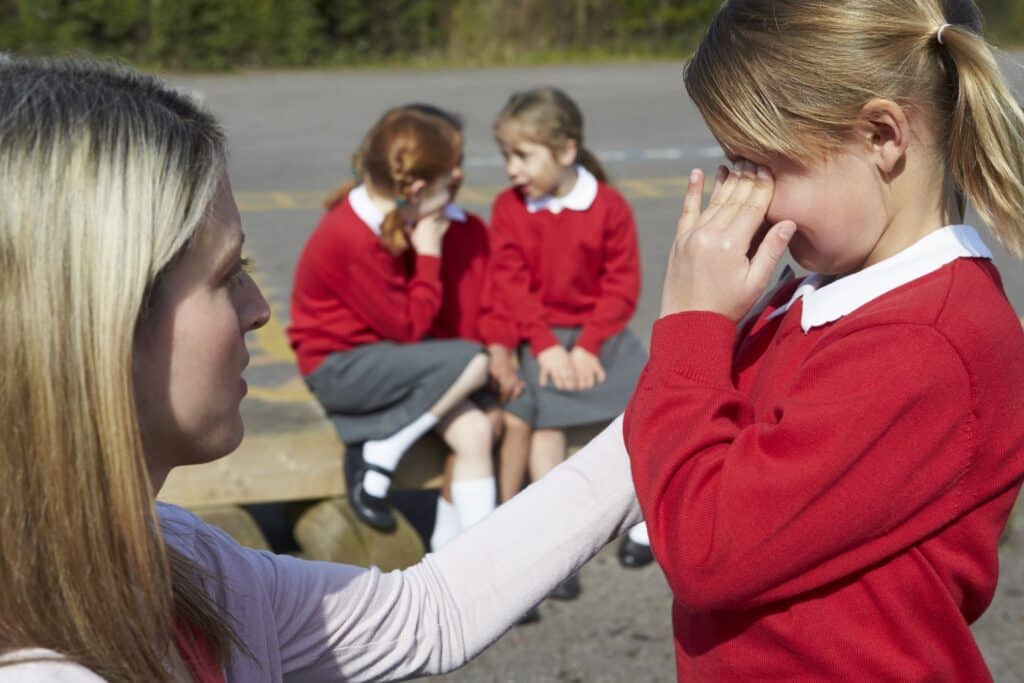What is Self-Regulation?
More and more we hear the term “self-regulation/self-regulating.” First, let’s explore an area where we as adults, use self-regulation.
Let’s use the example of waiting in line at the coffee shop’s drive-thru. Two lanes are merging closer and closer to the pickup window, and the car alongside of you decides to merge first, nearly hitting the front of your car, jumping in front of you in line. Do you get angry, lay on the horn, scream at the car in front of you and the driver?
Possibly, you may bite your tongue, count to ten, take a deep breath and let the incident go. As an adult, your response to this situation is dependent on the emotions and actions that you have under your control and whether you have the established coping mechanisms in place to handle this calmly. Having these skills, is another way of saying you used self-regulation.
Often self-regulation is a term that educators use, or even at times therapists and pediatricians. Self-regulation is often described as the ability to understand and manage your own behaviors and reactions to things happening in your surroundings and the emotions you are feeling. When we think of young children, some even younger than school age, think of the difference self-regulation can make when dealing with an anxious child or a child that has been exposed to trauma.
For early childhood students, being able to self-regulate does not only apply to a child’s social and emotional health, but it also may greatly impact a child’s cognitive ability. A young child tends to be more impulsive than an older student. If adults that come into frequent contact with a child teaches them how to effectively self-regulate as well as how to incorporate this into their young lives, this may make a huge difference in their actions.
A child who is taught at an early age how to use self-regulation as an emotional tool, allows for them to be more mindful and deliberate of their actions. I am sure we have often heard of the phase “stop and think”; this is truly a sense of self-regulation. When a child takes the time to stop and think, this eliminates impulsivity and may stop a negative behavior from occurring.
Unfortunately, when young children are sent off to kindergarten without having self-regulation skills in place as part of their early childhood development, this can hinder a child’s ability to learn as quickly as another child or may impact their listening skills as well as be a result of a student having difficulty focusing.
Promoting self-regulation before students come to kindergarten is becoming increasingly common in nursery schools, preschools, and daycare settings. This is so very important as our young learners are greatly impacted from this. Children who do not often practice self-regulation, or know about this skill, they may possibly never reach their full potential cognitively or emotionally. Think of a child in a kindergarten classroom who may get very upset over another student sitting where they wanted to in the cafeteria.
A child with self-regulation skills that are already developed would move on from a scenario like this, where as a student without self-regulation skills may become angry, act out, and put themselves in a tough situation in front of all of their peers. This may be enough to pull them off track for the remainder of the day if they do not know how to appropriately handle their emotions.
Simple Ways to Guide Early Childhood Students Through Self-Regulating
The good news is there are easy ways that young children can learn these skills for self-regulating. If adults have a willingness to adapt their teaching skills to the level of a child’s temperament, this can really help students handle their emotions. This often is more easily done in a one-to-one situation for a child. While doing so it is extremely important that adults play close attention and monitor how a child feels and do their best to tend to their individual needs.
Practice, Practice, Practice
We should not forget that all children must learn how to develop these skills and regulate themselves. In order to learn this, they must be taught. Allowing children the time to practice and apply the skills that you are trying to teach them to self-regulate should also be part of setting the rules. By providing children visuals, this helps them remember the skills that they are working on and helps bring their attention back to the task that must be completed.
Work on Listening Skills
Following directions is an important part of self-regulating as well. Think of the benefits a school-age child would have going into kindergarten when they already have great listening skills.
Calm Down Corners
Several activities can be put into place in assisting our young children to build these skills. Creating a calm-down corner for a child to take time to stop and share how they are feeling is the first step to processing through self-regulating.
Playtime
When children can describe how they are feeling, not only does this help keep them calm, but also is a way to help build their feelings vocabulary which will continue to develop over time. This is important for their social-emotional learning as well. Adding in creative pretend play also allows children to act out situations. Often playtime can include, puppets, dolls, figurines, etc., that take over emotions as they play. Different responses and solutions are formulated as children play increasing their understanding of feelings.
As adults understand the importance of children knowing how to self-regulate, our young learners will be able to respond appropriately to their emotions positively. This will prepare them to be better equipped to make their day a great one.
Have a passion for early childhood education? Explore our available early childhood education graduate programs and get started today!




